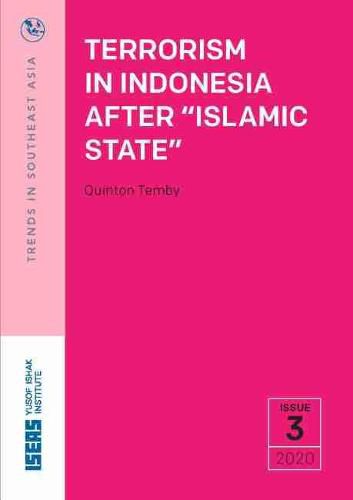Readings Newsletter
Become a Readings Member to make your shopping experience even easier.
Sign in or sign up for free!
You’re not far away from qualifying for FREE standard shipping within Australia
You’ve qualified for FREE standard shipping within Australia
The cart is loading…






The emergence of the Islamic State (IS) movement in Indonesia in 2014 re-energized violent extremism in Indonesia. As a result of effective counterterrorism policing, however, IS networks have been decimated and the structure of jihadism in Indonesia has shifted from organizations to autonomous networks and cells, increasingly organized via the Internet.
Although support for violent extremism in Indonesia remains marginal, cells of IS followers maintain a low-level capacity to conduct lethal attacks against civilian and government targets. Most IS operations in Indonesia are sporadic and low-level attacks against the Indonesian police. Religious minorities have also been high-profile targets, as in the Surabaya church suicide bombings of 13 May 2018. There are some indications, however, of militants’ renewed interest in attacking foreign targets, such as tourists on the resort island of Bali.
IS returnees from the Middle East have begun to play a role in recent attacks. The presence of this population in Indonesia raises the risk of militant capabilities being enhanced above their current relatively low level. Most returnees are women and children, and the increasing involvement of this cohort in IS attacks promises to complicate counterterrorism operations. The rise of pro-IS charities in Indonesia, poised to service returnees and reintegrate them into Indonesia’s jihadist community, further exacerbates this problem.
The overall threat of terrorism to the Indonesian state and to the stability of the Joko Widodo administration remains low. Surprise attacks by unknown cells, however, have the potential to shock the Indonesian political system, provoking government repression of Islamists and exacerbating political polarization and community tensions.
$9.00 standard shipping within Australia
FREE standard shipping within Australia for orders over $100.00
Express & International shipping calculated at checkout
The emergence of the Islamic State (IS) movement in Indonesia in 2014 re-energized violent extremism in Indonesia. As a result of effective counterterrorism policing, however, IS networks have been decimated and the structure of jihadism in Indonesia has shifted from organizations to autonomous networks and cells, increasingly organized via the Internet.
Although support for violent extremism in Indonesia remains marginal, cells of IS followers maintain a low-level capacity to conduct lethal attacks against civilian and government targets. Most IS operations in Indonesia are sporadic and low-level attacks against the Indonesian police. Religious minorities have also been high-profile targets, as in the Surabaya church suicide bombings of 13 May 2018. There are some indications, however, of militants’ renewed interest in attacking foreign targets, such as tourists on the resort island of Bali.
IS returnees from the Middle East have begun to play a role in recent attacks. The presence of this population in Indonesia raises the risk of militant capabilities being enhanced above their current relatively low level. Most returnees are women and children, and the increasing involvement of this cohort in IS attacks promises to complicate counterterrorism operations. The rise of pro-IS charities in Indonesia, poised to service returnees and reintegrate them into Indonesia’s jihadist community, further exacerbates this problem.
The overall threat of terrorism to the Indonesian state and to the stability of the Joko Widodo administration remains low. Surprise attacks by unknown cells, however, have the potential to shock the Indonesian political system, provoking government repression of Islamists and exacerbating political polarization and community tensions.